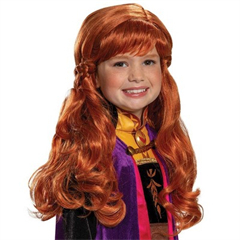The psychology of gray hair and wigs is a complex and multifaceted topic, as it involves personal identity, self-esteem, societal perceptions, and individual choices. Here are some psychological aspects to consider:
- Personal Identity: Gray hair, whether natural or artificial, can be a significant aspect of a person’s identity. It can symbolize wisdom, experience, and maturity. For some individuals, embracing their natural gray hair is a statement of self-acceptance and authenticity, while others may choose to wear gray wigs for creative expression or convenience.
- Self-Esteem: How a person feels about their gray hair or wig often ties into their self-esteem. Some people may feel more confident and empowered by embracing their natural gray hair, while others may use wigs, including gray ones, to enhance their self-esteem and appearance.
- Societal Perceptions: Society’s attitudes toward gray hair can influence an individual’s choices. In many cultures, youthfulness is highly valued, and gray hair has been associated with aging. However, modern beauty standards are evolving, and many people are challenging these stereotypes by proudly sporting gray hair or choosing gray wigs.
- Cultural and Gender Factors: Cultural and gender norms can play a role in how gray hair is perceived. In some cultures, gray hair is seen as a sign of wisdom and respect, while in others, it may be considered less desirable. Additionally, women, in particular, may face unique pressures to maintain a youthful appearance, which can influence their decisions regarding gray hair and wigs.
- Choice and Empowerment: The decision to wear a gray wig or embrace natural gray hair can be an empowering one. It allows individuals to exercise control over their appearance and express their personal style. Some people choose wigs for fun and variety, while others may have medical reasons for using them.
- Social Acceptance: The level of social acceptance of gray hair and wigs can vary widely. Some individuals may face judgment or criticism for their choices, while others are celebrated for their confidence and authenticity.
- Psychological Impact: The psychological impact of gray hair and wigs can be positive or negative, depending on personal attitudes and societal influences. Confidence, self-expression, and comfort with one’s appearance are important factors.
In summary, the psychology of gray hair and wigs is deeply intertwined with individual identity, self-esteem, societal norms, and cultural factors. It’s important to recognize that there is no one-size-fits-all approach, and people make choices about their hair based on their unique experiences and values. Ultimately, the decision to embrace natural gray hair or wear gray wigs should be a matter of personal choice, free from judgment and influenced by what makes an individual feel comfortable and confident in their own skin.









